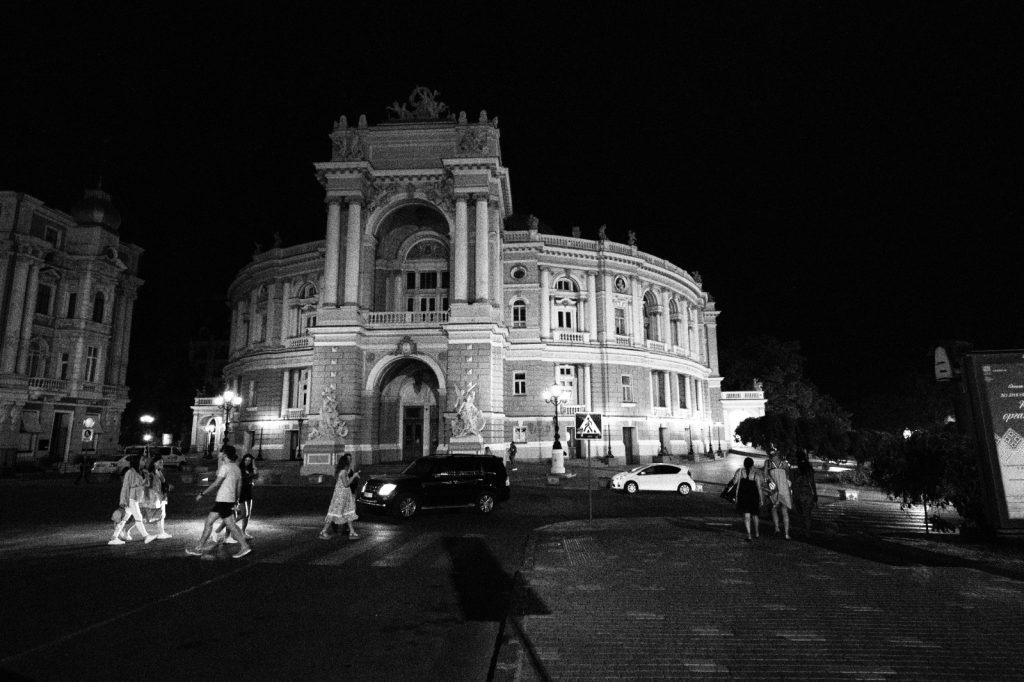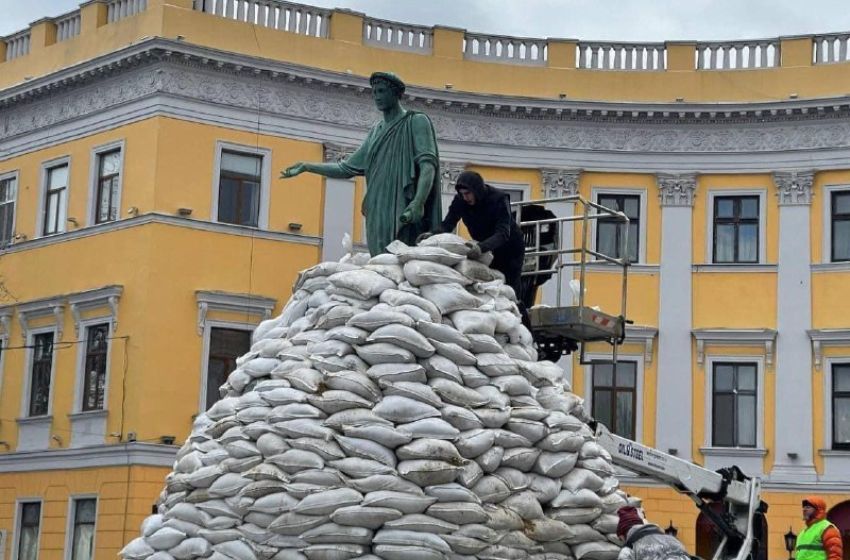By Alessandro Farinella, Italian lover of Odessa, married with a Ukrainian wife.
* Cover photo by Enzo Dell'Acqua
Returning to Odessa after 10 months means being faced with great changes. Traffic has decreased significantly and despite this decrease road accidents have increased due to the switching off of traffic lights, especially at night, luckily the curfew starts at 11pm. Otherwise there would be many more accidents. On the other hand, it is difficult to drive without any kind of street lighting in the city. Even the people on the street are much less than I would have expected. In the parks there are no women with children. There are only people who walk, slowly, others take their dogs for a walk, others drink tea sitting at the tables of the open-air stalls. Cold is not a problem. Although to tell the truth this year the cold in Odessa has not really been seen.
The streets are incredibly clean. Marshrutkas (minibuses for public transport) also come out cleaner. Never seen such a thing. Many shops have closed but fortunately the supermarkets are all open. There is nothing missing on the shelves. The only problem is that when the air raid alarm goes off, the lights go out everywhere and you can't buy anything anymore. You have to wait for the electricity to come back to be able to use credit cards and electronic payments. Each shop has a diesel generator outside the window. We realize that there is a power cut because these generators start everywhere. The very rhythm of people's lives is punctuated by this constant sound of engines. Sound of engines and aircraft alarm in continuous alternation. I look at the app on the phone that informs me about air alerts and confirms what the siren is saying. No way. Shopping needs to be postponed. Meanwhile, small queues of people are forming outside the shops waiting to go shopping again.
I keep walking in these semi-deserted streets and I notice an unusual detail. Silence. There is a surreal silence on the street. One of the things that characterised life in Odessa was the constant rumble of cars that were exhausted and made up to make them appear more powerful. Old Ladas with modified tailpipes roaring at traffic lights day and night. There is none of this anymore. In its place is silence. But not just traffic. But people don't talk either. It is as if they are all waiting for the next air raid warning, listening to the sky and hoping not to hear anything. The vitality that was perceived in Odessa has given way to a form of melancholy unusual for this city which has always been a lively seaside city.
The statue of Catherine, near the opera house, has been removed and with her goes another piece of history of the Russian occupation. Previously, only Russian was spoken here. Now, I don't know anymore. I'm always afraid of making a mistake if I say "spasiba" or "diakuyu". I speak in English so I solve the problem. Nobody understands me anyway. People nod and look at me like I'm an alien. Those few who speak to me ask me only one thing: are you Italian? What are you doing here? Are not you scared? And I always answer the same thing: what should I be afraid of? But when they realise that I married a Ukrainian woman and I'm here for her their gaze changes. They become full of admiration and always ask me, as if it were a mantra: you who are Italian let the world know what is happening here.
Unfortunately, the reality of what happens and what can be told is far away. I realise that news do not arrive in Europe. But even here it is difficult to know the truth of what is happening. The only thing you see on the news is the destruction of entire cities. But how is the war going? Nobody says this. When there is a minister or a soldier who is interviewed on the news the answers are always the same: at the moment I cannot answer on the operations that are conducted by the army.
So what can we say - nothing! You have to be silent and wait. And even in the silence of waiting for who knows what positive news from the front that war is being waged. And here people wait for news in silence. Faced with the horror of this senseless aggression, people respond with silence. And it is a very noisy, almost deafening silence that can be perceived in the street, disturbed only by the noise of the generators outside the shops and offices. The lights of the downtown streets are all on. Big brands have opened stores with even bigger storefronts than before. As if this war is just a hiccup and the economy will not stop its course. The Ukrainian revival will not stop. But for now all this happens in silence.






















